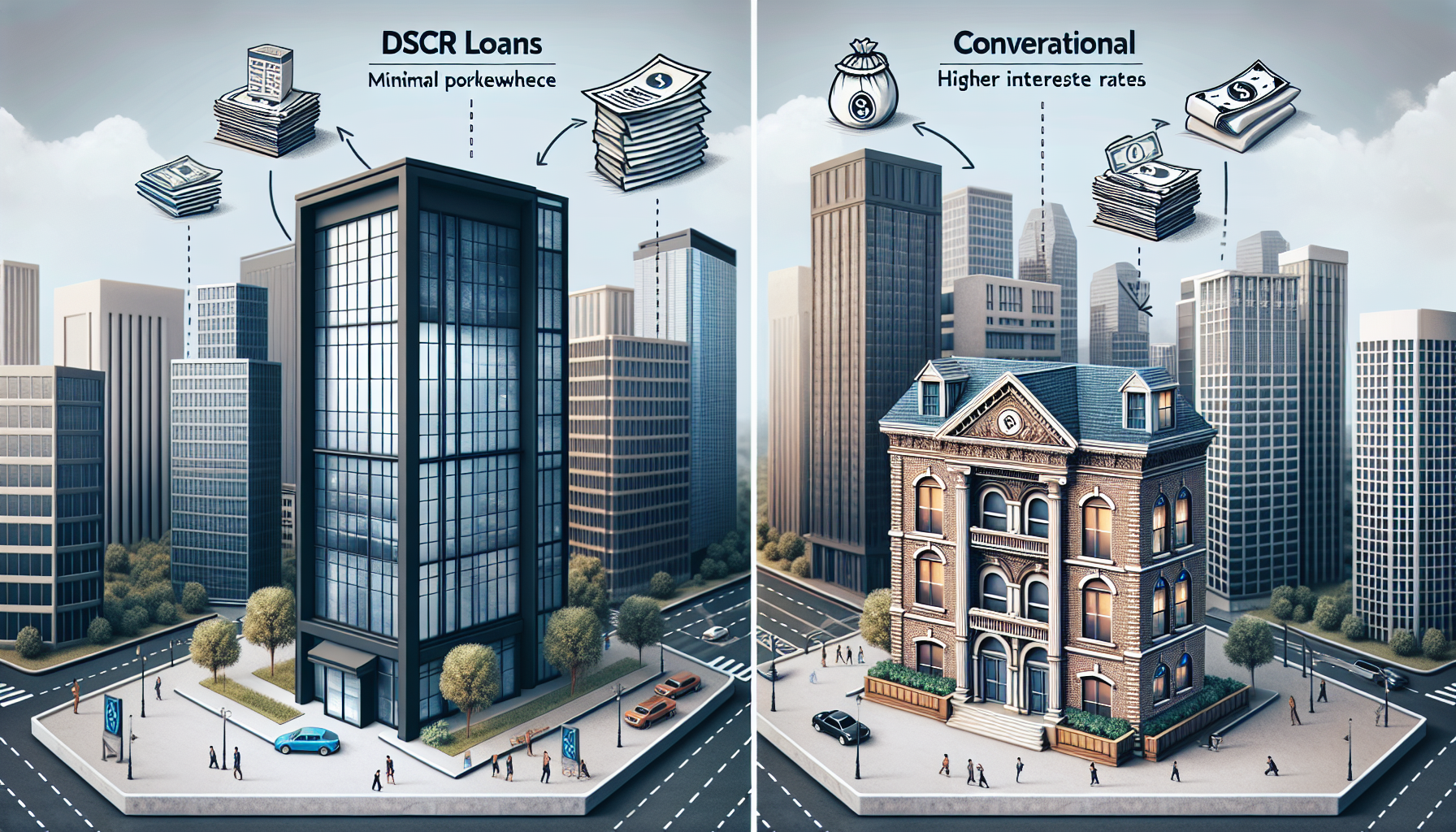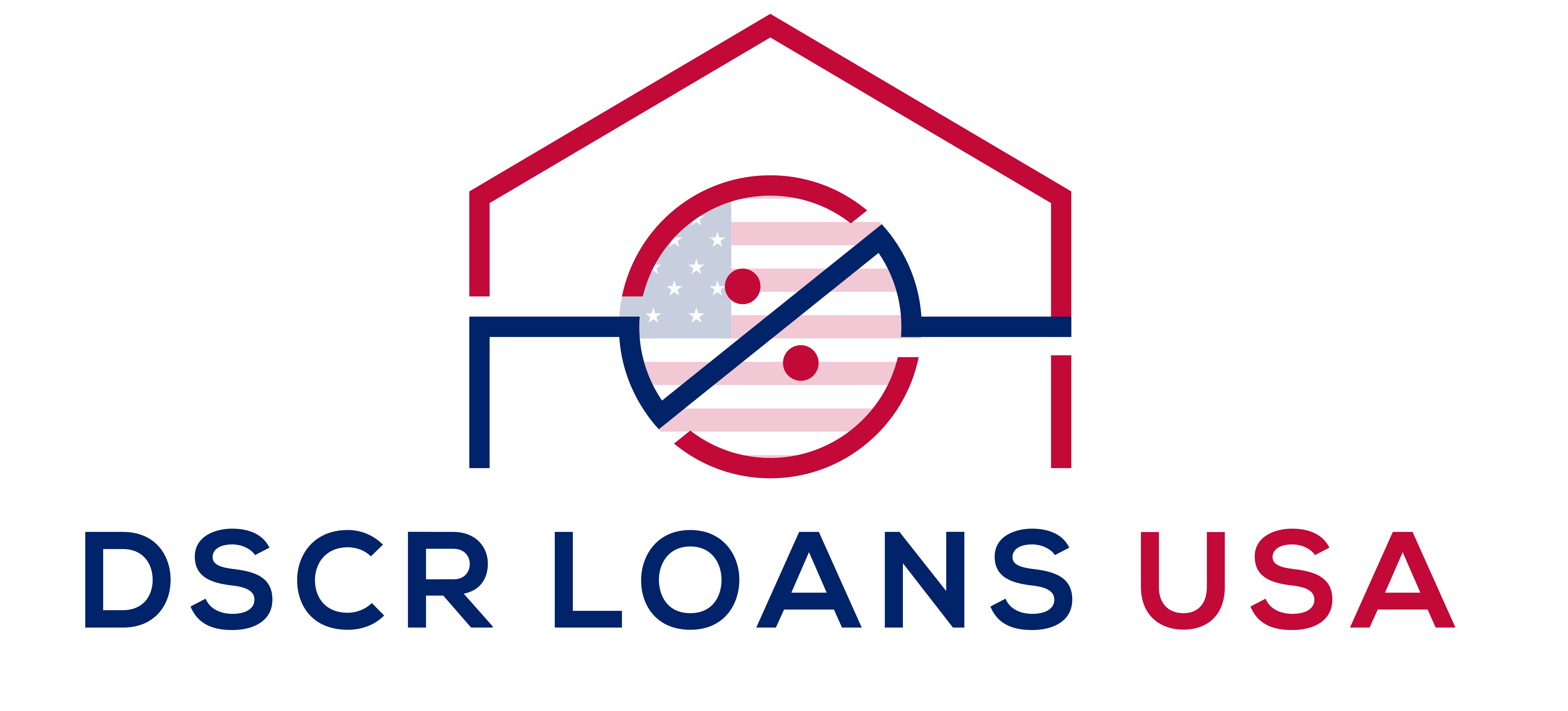Unlock the Benefits of DSCR Loan Michigan for Your Investment Properties
Considering a DSCR loan Michigan for your property investments?
Learn what it takes to qualify and why this financial option can be a game-changer. DSCR loans in Michigan hinge on the income-producing power of your properties — ideal for the state’s thriving real estate market.
This guide will walk you through the benefits, qualification criteria, and application process, helping you decide if a DSCR loan in Michigan meets your investment objectives.
Key Takeaways
- DSCR loans in Michigan are designed for real estate investors, using a property’s rental income rather than personal income to qualify for and service the loan, providing a flexible and property-centric financing option.
- Eligibility for a DSCR loan in Michigan depends on several factors including a satisfactory credit score (typically 620-680), a substantial down payment (generally around 20-25%), and rental income that exceeds monthly mortgage payments.
- The benefits of DSCR loans for Michigan investors include a streamlined approval process, the potential for faster closing times, and flexible options like interest-only payments and no need for personal income verification, making them ideal for financing multiple properties.
Understanding Michigan DSCR Loans

DSCR loans are the ace up the sleeve for real estate investors, offering a level of financial agility that traditional loans simply can’t match. In Michigan, where economic resilience has sparked a real estate renaissance, these loans shine as a beacon of opportunity. DSCR loans stand out by allowing borrowers to use the rental income of a property to make loan payments, thereby ensuring that investments are valued based on their own merit, and not the personal income of the borrower. The Michigan real estate market, with its affordable housing and burgeoning demand, becomes ripe for the picking for investors equipped with such a tool.
The beauty of DSCR loans lies in their simplicity and adaptability. Michigan real estate investors benefit from a streamlined approval process, the ability to finance under a business entity, and generous repayment terms that allow a firm grip on investment properties. Whether you’re looking to expand your portfolio or refinance existing assets, DSCR loans provide the flexibility and financial foundation necessary for sustained success.
Navigating DSCR Loan Eligibility in Michigan
Stepping into the realm of DSCR loans in Michigan requires a clear understanding of eligibility criteria. At its core, this loan type pivots on three main pillars: a satisfactory credit score, a substantial down payment, and rental income that can comfortably cover mortgage payments. These components work in concert to open the door to financing that aligns with your investment aspirations.
We will now proceed to examine each qualifying factor in detail, in order to guide you on the path to obtaining your maximum loan approval.
Rental Income as a Qualification Metric
At the heart of every DSCR loan in Michigan is the monthly rental income, serving as the cornerstone of qualification. This pivot away from personal financial factors like income and credit score towards the property’s income potential is a game-changer for investors.
To cross the threshold of qualification, investors must demonstrate that the property’s rental income surpasses its mortgage obligations each month without fail. This ensures that the investment property isn’t just a static asset but a dynamic source of revenue, fueling its own growth and securing its financial foothold.
The Role of Credit Score in Securing Your Loan
While the emphasis may be on rental income, creditworthiness still plays a vital role in securing a DSCR loan. In Michigan, a credit score between 620 to 640 is typically the starting gate for eligibility, though some lenders, like Visio Lending, may require a minimum credit score of 680. This flexibility in credit requirements opens up avenues for a broader range of investors, including those who may not fit the traditional lending mold.
A strong credit standing strengthens your financial profile and enhances your chances of obtaining favorable loan terms.
Down Payment Details for DSCR Success
Embarking on a DSCR loan journey in Michigan also means navigating the waters of down payments. Here are some key points to keep in mind:
- A minimum down payment of around 20% is generally the standard, ensuring the loan-to-value (LTV) ratio does not spiral beyond 80%.
- A more conservative option is a 75% down payment, which might sweeten the deal for better terms.
- The size of the down payment could scale up, depending on the property’s specific DSCR ratio and the lender’s LTV requirements.
- The upfront investment is crucial, as it not only affects your initial financial commitment but also your long-term loan dynamics.
Maximizing Investment with Michigan DSCR Loans

The capabilities of DSCR loans extend far beyond mere financial backing; they offer a suite of advantages that cater to the diverse needs of Michigan’s real estate investors. The benefits are plentiful:
- Faster closing times
- Bypass of income or employment verification
- Options like interest-only loans
- Competitive interest rates
With such flexibility at your fingertips, the pursuit of residential rental property, multifamily homes, commercial spaces, vacation rentals, and other income-generating properties becomes a seamless affair.
These loans are not just a means to an end but a strategic tool designed to amplify your investment capabilities.
The Application Process: Getting Your Michigan DSCR Loan
The DSCR loan application process in Michigan is designed to be streamlined and straightforward, keeping you focused on your investment goals rather than burdened by paperwork. Initiating the application is as simple as going online or dialing (855) 394-8288 for support, ensuring you’re not navigating the waters alone.
Pre-qualification pivots on rental income, setting the stage for an experience tailored to the nuances of property investment. The documentation process, with its reduced paperwork, is a breath of fresh air compared to traditional mortgages, ensuring you reach the closing phase with speed and ease. Our comprehensive guide outlines every step, providing clarity and confidence as you secure your financial future.
How DSCR Loans Compare to Conventional Mortgages

When pitted against conventional mortgages, DSCR loans stand out for their investor-friendly features. The absence of traditional income verification protocols, like scrutinizing W-2s or pay stubs, is a significant departure from the norm and exemplifies the progressive nature of DSCR financing. These loans are crafted for a broad spectrum of borrowers, especially the self-employed and those whose primary dealings are with rental real estate. In this context, a conventional loan may not be the best fit for such borrowers.
While interest rates for DSCR loans typically are 1-2% higher than those of conventional mortgages, this is offset by greater accessibility and a specialized focus on rental properties.
Tailoring Your Real Estate Portfolio with Michigan DSCR Loans

Michigan real estate investors looking to tailor their portfolios find DSCR loans to be a cut above the rest. These loans are purpose-built for the acquisition and refinancing of rental properties, enabling investors to scale their holdings without being bogged down by the number of mortgages. The ability to secure multiple properties simultaneously, unrestricted by personal debt-to-income ratios, is a testament to the loan’s design for portfolio expansion.
Even for those managing a multitude of mortgaged properties, DSCR loans offer a consolidated approach to managing income and expenses, further streamlining the qualification process.
The Financial Mechanics of DSCR Loans
For Michigan investors, it’s crucial to understand the financial mechanics of DSCR loans. The debt service coverage ratio itself is a simple yet powerful calculation, dividing a property’s rental income by its monthly mortgage expenses to arrive at a figure that represents financial stability. For a green light on a DSCR loan, you’re aiming for a ratio of at least 1.0, though some lenders may seek a more comfortable cushion of 1.2, while others could go as low as 0.75.
A ratio above 1 indicates a positive cash flow, ensuring that the property can independently shoulder its debt obligations—a strong signal to lenders of a viable investment.
Overcoming Investment Hurdles with DSCR Loans
DSCR loans are particularly useful for Michigan investors in navigating the ups and downs of property investments, especially when net operating incomes fluctuate. Financing is possible even when properties dip below a DSCR of 1.00, given other aspects of the financial picture are strong. These loans empower investors to make decisions based on a property’s income-producing potential, rather than being constrained by less flexible traditional lending metrics.
However, variables like irregular vacancy rates or unexpected expenses can challenge the effectiveness of DSCR loans, underscoring the importance of thorough financial planning.
DSCR Loan Terms to Know
Gaining familiarity with the terms and conditions of DSCR loans can facilitate a smoother investment journey in Michigan. Expect interest rates to be slightly elevated compared to conventional loans, typically by 1-2%, reflecting the specialized nature of this financing option. The repayment timeline is generous, often stretching over thirty years, providing ample time to realize your investment’s growth potential.
While prepayment penalties exist, they reduce over time, starting from around 10% and dwindling to 3%, depending on how long you’ve held the loan. These terms, including possible interest-only periods and origination fees, are part of the DSCR loan’s flexible framework, designed to align with your investment strategy.
Empowering Your Real Estate Investments with DSCR Loans

DSCR loans, also known as real estate investment loans, serve not just as funding but also as a launching pad for Michigan real estate investors looking to enhance their market presence. By centering on the income potential of properties, these loans sidestep the traditional emphasis on personal income, granting investors the freedom to focus on strategic growth.
Whether you’re eyeing a new acquisition or aiming to elevate your current holdings, DSCR loans offer the tailored support needed to achieve your real estate investment goals.
Summary
As we pull back the curtain on Michigan DSCR loans, it’s clear they offer a compelling advantage for real estate investors. By prioritizing property income over personal finance, these loans provide the flexibility and financial acumen needed to thrive in today’s market. Whether you’re scaling up, diversifying, or just starting, DSCR loans are the strategic partner that can help turn your real estate aspirations into tangible success.
Frequently Asked Questions
What exactly is a DSCR loan and how does it work?
A DSCR loan, also known as a Debt Service Coverage Ratio loan, is a real estate investment loan that considers the rental income of the property for eligibility. It works by assessing if the property’s income can cover its debt obligations, including the mortgage and related expenses.
Can I use a DSCR loan for a property I plan to live in?
No, DSCR loans are not suitable for properties you plan to live in as they are designed for rental properties and not for owner-occupied residences. They cater to real estate investors seeking financing for properties that generate rental income.
What are the typical credit score requirements for a DSCR loan in Michigan?
The typical credit score requirement for a DSCR loan in Michigan is between 620 to 640, with some lenders, like Visio Lending, having a minimum requirement of 680. This ensures you meet the necessary credit score criteria for a DSCR loan.
Are the interest rates for DSCR loans higher than conventional mortgages?
Yes, interest rates for DSCR loans are typically 1% to 2% higher than conventional mortgages, reflecting the specialized nature of these loans.
How many DSCR loans can a real estate investor have in Michigan?
Real estate investors in Michigan can have multiple DSCR loans, allowing them to purchase multiple rental properties and expand their portfolios without limits.
Ready for More Great Tips and Information? Join Our Email List Today!


Leave a Reply